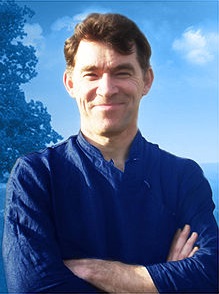Guest writer for Wake Up World
Six years ago this week, on May 22, 2017, my home city of Manchester, England, suffered a terrorist attack. A suicide bomber detonated a homemade bomb in the foyer of an arena after an Ariana Grande concert. Twenty-three people were killed, and over 1000 were injured, most of them teenagers and children.
The attack was a tragic reminder of the brutality and destruction that emerge from the worst aspects of human nature. However, there is another side to the incident, which illustrates the best aspects of human nature.
A report into the attack, commissioned by the mayor of Manchester, noted “hundreds if not thousands of acts of individual bravery and selflessness.” More specifically, the report described “the heroic actions of some members of the public involved in the widespread provision of first aid and reassurance to the casualties as well as assisting in the portage of those casualties.”
Public members worked with police officers to carry out injured people on metal railings. Stewards formed a human wall to stop people from going toward the smoke. A man named Stephen Jones was sleeping rough near the venue and rushed in to help. He found many children covered with blood, screaming, and crying. He and a friend pulled nails out of the children’s arms—and in one case, out of a child’s face—and helped a severely bleeding woman by holding her legs in the air. Jones described, “It was just my instinct to go and help people out.”
As a paramedic named Dan Smith, who was at the scene, commented, “There were an unbelievable amount of people doing what they could to help…I saw people putting together in a way I have never seen before…The thing I will remember more than any other is the humanity that was on display.”
Danger of death
Acts of heroic altruism are almost always a feature of crises and emergency situations. When a person’s life is endangered, it is common for witnesses or bystanders to act impulsively to try to save them, even if it involves risk to their own lives. This applies to small-scale individual incidents–such as attempting to save someone from drowning or jumping down from a train platform to save someone who has fallen onto the track–and also to major disasters, such as earthquakes or airplane accidents. Such examples contradict the theory of the bystander effect, which suggests that observers are reluctant to help in the presence of other bystanders. (This theory has been largely discredited in recent years.)
One might expect such acts of heroic altruism to become less frequent as personal risk increases, but this is not the case. In terrorist attacks, there are almost always reports of heroic altruism, despite the acute life-threatening danger.
For example, in 2019, a purportedly reformed terrorist was attending an offender rehabilitation conference in London when he ran amok with two knives, quickly killing two other conference participants. The terrorist ran outside, intending to kill others. However, members of the public quickly surrounded him, wielding improvised weapons such as a fire extinguisher and a long narwhal tusk (taken from the wall of the conference hall). The group wrestled the terrorist to the ground and held him down until police officers arrived. This was even though he was wearing a suicide vest (later found to be fake). One witness described how a pedestrian “ran through traffic and jumped the central partition to confront the attacker with several others…Amazing bravery.”
The Paris terrorist attacks of November 2015 featured several incidences of altruistic heroism. At the Bataclan Hall–where 89 people were killed–a security guard named Didi risked his life to guide an estimated 400-500 people to safety, walking them back and forth through emergency exits to a nearby students’ hall of residence. A pregnant woman he guided to safety said, “My life will never be long enough to thank him for what he did. And thanks to him, my baby has a mother. We saw the worst things that night, the worst human beings ever. And then we saw the best thing” (ibid.).
Tragically, a man named Ludovico Boumbas did lose his own life through his altruism. He was eating at the Belle Equippe bar when terrorists began shooting at the terrace. Rather than diving for cover, when he saw a gunman aiming at a woman nearby, he impulsively dived before her, sacrificing his life for hers.
Explaining extreme altruism
Neo-Darwinism and evolutionary psychology theories portray humans as ruthless genetic machines only concerned with survival and reproduction. From such a perspective, altruism is problematic, especially at the extreme level described above. If human behaviour is motivated by selfishness, why are we willing to impulsively endanger our own lives for the sake of strangers? Theories such as kin selection, reciprocal altruism, “costly signaling,” or hidden egoism struggle to account for such selfless and heroic behavior.1 As economist Hannes Rusch noted in a recent paper, most studies that purport to show evidence for the above theories are only based on “low-stake” altruism.2 (After all, it’s difficult to conduct to attain ethical approval for studies of high-stake altruism.)
It is very significant that the above acts of altruism are impulsive. They occur on the spur of the moment, without any conscious deliberation. In a series of studies led by psychologist David Rand (from 2012 and 2014), a strong correlation has been established between impulsivity and altruism.3 The less time individuals have to deliberate, the more likely they are to be altruistic. A 2020 paper also concluded that heroic altruism is “intuitive” rather than the result of reflection.4
This suggests that altruism is innate to human beings. As I point out in my new book DisConnected, altruism arises from interconnection.5 There is a sense in which human beings are not separate entities. We can enter each other’s mental space and share each other’s experiences. In other words, we can empathise with one another. And empathy gives rise to altruism. As the “altruism-empathy” hypothesis developed by Daniel Batson6 suggests, altruism may sometimes have selfish motives or bring some beneficial after-effects. But “pure” altruism also arises from the human capacity for empathy.
Our capacity to sense the suffering of others gives rise to an impulse to alleviate that suffering. In a 2019 study of heroism entitled “The Making of a Hero,” the authors noted that one of the main characteristics of heroes is “an expansive sense of empathy, not simply with those who might be considered ‘like them’ but also those who might be thought of as ‘other.’”7
The brutality of terrorism arises from disconnection—the ideological abstraction that divorces adherents to the reality and value of other human beings. In contrast, heroic altruism arises from a fundamental connection between human beings, which enables empathy and triggers an impulse to save the lives of others.
References:
1. Taylor, S. (2019). The puzzle of altruism: When selfish genes behave unselfishly. Explore, 15, 5, 371-375
2. Rusch, H. (2022). Heroic behavior: A review of the literature on high-stakes altruism in the wild,
Current Opinion in Psychology, 43, 238-243,
3. Rand. D.G., Epstein, Z.G.. (2014). Risking your life without a second thought: intuitive decision-making and extreme altruism. PLoS One. 15;9(10):e109687. doi: 10.1371/journal.pone.0109687. PMID: 25333876; PMCID: PMC4198114.
4. Rong Shi, Wei (Gabriel) Qi, Yi Ding, Chang Liu, Wangbing Shen (2020). Under what circumstances is helping an impulse? Emergency and prosocial traits affect intuitive prosocial behavior, Personality and Individual Differences, 159, 109828,
5. Taylor, S. (2023). DisConnected: The roots of human cruelty and how connection can heal the world. Iff Books.
6, Batson, C. D., Lishner, D. A., & Stocks, E. L. (2015). The empathy—Altruism hypothesis. In D. A. Schroeder & W. G. Graziano (Eds.), The Oxford handbook of prosocial behavior (pp. 259–281). Oxford University Press. https://doi.org/10.1093/oxfordhb/9780195399813.013.023
7. Kohen, A., Langdon, M., & Riches, B. R. (2019). The Making of a Hero: Cultivating Empathy, Altruism, and Heroic Imagination. Journal of Humanistic Psychology, 59(4), 617–633. https://doi.org/10.1177/0022167817708064
Originally published at Psychology Today and reproduced with permission.
About the author:
Steve Taylor is a senior lecturer in Psychology at Leeds Beckett University, UK. His latest books in the US are The Calm Center and Back to Sanity: Healing the Madness of the Human Mind. He is also the author of The Fall, Waking From Sleep, and Out Of The Darkness. His books have been published in 19 languages. His research has appeared in The Journal of Transpersonal Psychology, The Journal of Consciousness Studies, The Transpersonal Psychology Review, The International Journal of Transpersonal Studies, as well as the popular media in the UK, including on BBC World TV, The Guardian, and The Independent.
Connect with Steve at StevenMTaylor.com.

If you've found value in our articles, we invite you to support the release of our brand-new book, "Gratitude Practices for Kids: A Practical Guide for Adults to Instill a Spirit of Appreciation and Positivity in the Next Generation."
"Gratitude Practices for Kids" brings together over 25 innovative and accessible practices designed to enhance gratitude in everyday life. This comprehensive guide is backed by 17 scientific studies, ensuring each concept is grounded in research, underscoring our commitment to nurturing growth, emotional intelligence, and positive interactions between adults and children.
We encourage you to opt for the paperback version to celebrate this new release. Dive into its fresh pages away from digital distractions, allowing you to immerse yourself in the transformative practices it offers.
Over recent years, Wake Up World has faced significant online censorship, which has impacted our financial ability to operate. Moving into book publishing represents a strategic step to secure the ongoing funds needed to continue our mission. By purchasing Gratitude for Kids, you help us keep our content free and accessible to everyone, avoiding needing a paywall. With over 8,500 articles published in the last 13 years, we remain dedicated to keeping our valuable content open to all.










